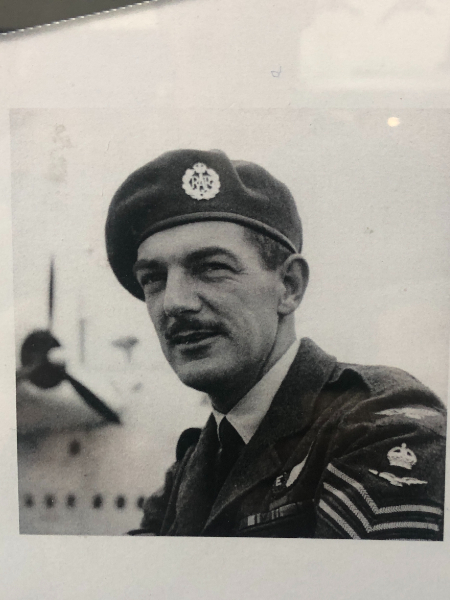Evans, Ernest Thomas
- Service number:
- 574485
- Nationality:
- British
Biography
This George Medal, a rare award for gallantry, was awarded in 1954 to RAF air engineer Ernest Thomas Edward ('Darkie') Evans following the herioc rescue of two Sunderland crewmen.
On 3rd March 1954 Sunderland NJ267 of 201 Squadron was carrying out training flights in the Haven waterway. During a take-off the aircraft plunged into the water and broke up.
Flight Sergeant Evans escaped from the sinking wreck but climbed back inside three times and rescued the navigator, Flying Officer Dalgleish, who had a broken arm, and signaller Sergeant Jayasinghe, who was badly injured. Of the 11 airmen on board, seven lost their lives.
This was RAF Pembroke Dock's worst post-war accident.
In June 1954 it was announced that Flight Sergeant Evans had been awarded the George Medal. Nicknamed 'Darkie', Flight Sergeant Evans joined the RAF in 1938, aged 15, and was later commissioned and attained the rank of Squadron Leader.
In 2023 his George Medal, World War II campaign medals, photographs and flying logbooks were donated to the Heritage Centre by daughter Patzi Harradine and her husband John. Patzi was just two when the accident happened.
Source: Pembroke Dock Heritage Centre
Do you have more information about this person? Inform us!
- Rank:
- Flight Sergeant
- Unit:
- RAF Pembroke Dock, Royal Air Force
- Awarded on:
- June 1st, 1954
Furthermore, the assistance given to these two almost helpless men so soon after he had himself escaped from drowning was, in itself, a physical feat of some magnitude. But for Flight Sergeant EVANS's gallantry, the navigator and signaller would undoubtedly have perished with the six other members of the crew who lost their lives."
Sources
- Photo 1: Pembroke Dock Heritage Centre
- - https://www.thegazette.co.uk/London/issue/40186/supplement/3195/data.pdf



